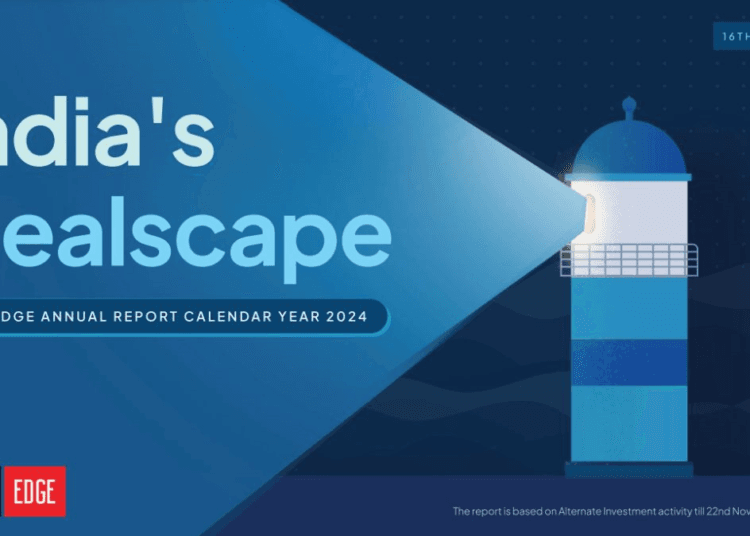Govt contributes $308m to RAMP for the benefit of 63 million MSMEs
The World Bank is lending US$500 million for a programme, “Raising and Accelerating MSME Performance” (RAMP), which commences from FY 2022-23 for improving access to market and credit, strengthening institutions and governance at the Centre and State Governments, improving Centre-State linkages and partnerships, addressing issues of delayed payments and greening of MSMEs.
The Government is contributing US$308 million for the US$808 million or Rs.6,062.45 crore programme approved by the Union Cabinet on 30 Mar 2022.
RAMP is a World Bank-assisted Central Sector Scheme, supporting various Corona Virus Disease 2019 (COVID) Resilience and Recovery Interventions of the Ministry of Micro, Small and Medium Enterprises (MoMSME).
In addition to building the MoMSME’s capacity at the national level, the RAMP program will seek to scale up implementation capacity and MSME coverage in States.
RAMP programme will address the generic and COVID related challenges in the MSME sector by way of impact enhancement of existing MSME schemes, especially, on the competitiveness front. Further, the programme will bolster the inadequately addressed blocks of capacity building, handholding, skill development, quality enrichment, technological upgradation, digitization, outreach and marketing promotion, amongst other things.
RAMP programme, through enhanced collaboration with States, will be a job-enabler, market promoter, finance facilitator, and will support vulnerable sections and greening initiatives.
In States where the presence of MSMEs is on the lower side, the programme will usher in larger formalization resulting from the higher impact of the schemes covered under RAMP. The SIPs developed by these States would act as a roadmap for the development of an improved MSME sector.
RAMP will complement the Atma Nirbhar Bharat mission by fostering innovation and enhancement in industry standards, practices and provide the necessary technological inputs to the MSMEs to make them competitive and self reliant, enhancing exports, substituting imports, and promoting domestic manufacturing.
RAMP would thus be a:
“Policy Provider” through the enhanced capacity for evidence-based policy and program design, to enable the delivery of more effective and cost-efficient MSME interventions to improve competitiveness and business sustainability.
“Knowledge Provider” through bench-marking, sharing and demonstrating best practices/success stories by leveraging international experiences, and
“Technology Provider” providing access to high-end technology resulting in the digital and technological transformation of MSMEs through state of art Artificial Intelligence, Data Analytics, Internet of things (IoT), Machine Learning etc.
RAMP programme with impacts across the country will directly or indirectly benefit all 63 million enterprises that qualify as MSMEs
However, a total of 555,000 MSMEs are specifically targetted for enhanced performance and, in addition, expansion of target market to include servicesectors and increase of about 70,500 women MSMEs is envisaged.
Implementation Strategy and Targets:
The programme has identified two results areas after the preliminary missions and studies viz: (1) Strengthening Institutions and Governance of the MSME Program, and (2) Support to Market Access, Firm Capabilities and Access to Finance.
Funds would flow through RAMP into the Ministry’s budget against Disbursement Linked Indicators (DLIs) to support ongoing MoMSME programmes, focusing on improving market access and competitiveness.
The disbursement of funds from World Bank towards RAMP would be made on fulfilling the following Disbursement Linked Indicators:
Implementing the National MSME Reform Agenda
Accelerating MSME Sector Centre-State collaboration
Enhancing effectiveness of Technology Upgradation Scheme (CLCS-TUS)
Strengthening Receivable Financing Market for MSMEs
Enhancing Effectiveness of Credit Guarantee Trust for Micro and Small Enterprises (CGTMSE) and “Greening and Gender” delivery
Reducing the incidence of delayed payments
Important component of RAMP is preparation of Strategic Investment Plans (SIPs), in which all states/UTs, will be invited.
The SIPs would include an outreach plan for identification and mobilisation of MSMEs under RAMP, identify key constraints and gaps, set milestones and project the required budgets for interventions in priority sectors including renewable energy, rural & non-farm business, wholesale and retail trade, village and cottage industries, women enterprises etc.
The overall monitoring and policy overview of RAMP would be done by an apex National MSME Council, headed by Minister for MSME, including representation from various Ministries and supported by a secretariat. A RAMP programme committee headed by the Secretary of MoMSME to monitor the specific deliverables under RAMP. Further, for day to day implementation there would be programme management units at the National level and in States, comprising professionals and experts competitively selected from the industry to support MoMSME and States, to implement, monitor and evaluate RAMP programme.
States/Districts covered:
All States/UTs will be invited to prepare SIPs and the proposals placed under SIPs will be funded based on theie appraisals.
The funding would be based on objective selection criteria and the SIPs would be appraised and approved through a rigorous process set up in MoMSME.
RAMP was formulated and proposed by the Indian Government for strengthening MSMEs in line with the recommendations made by U K Sinha Committee, KV Kamath Committee and Economic Advisory Council to the Prime Minister (PMEAC).
The Department of Economic Affairs (DEA) in the 97th Screening Committee meeting approved the preliminary proposal on RAMP. This was followed by Missions, extensive consultations with States and other stakeholders, technical and fiduciary assessments conducted by the World Bank.
Thereafter, an Expenditure Finance Committee (EFC) Note was prepared and circulated to concerned line Ministries and Departments for obtaining their comments. The EFC discussed the Note in its meeting held on 18 March 2021 and recommended the proposal for consideration by the Cabinet. fiinews.com









